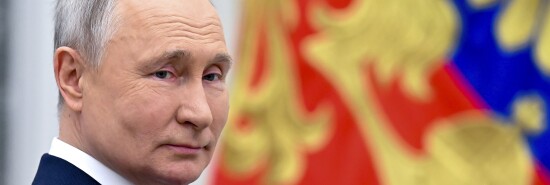
A New START must include an end to Russian deception
Washington Examiner
Video Embed
National security adviser Jake Sullivan announced Friday that the United States is ready to pursue new nuclear arms control talks with China and Russia “without preconditions.” He added that this “does not mean ‘without accountability.'”
That qualification is critical. The destructive power of nuclear weapons means nuclear negotiations should be kept separate from all other confrontations, such as the war in Ukraine. Still, any new arms controls must include something that has been sorely lacking in recent agreements — namely, assurances of Russian compliance and enforceable sanctions for breaches.
HOW GEORGE SOROS IS SPREADING ADDICTION AND DEATH
While China is building its nuclear arsenal, with Sullivan estimating it will have 1,500 warheads by 2035, Beijing has shown no interest in joining arms control agreements. Until that changes, Russia will be the priority. Unfortunately, Moscow’s recent record gives little cause for optimism.
It imploded the New START treaty in February by blocking U.S. inspectors. The U.S. responded on Friday by stating that Russian inspectors would no longer be allowed access to U.S. airspace and related facilities. Russia also collapsed the Intermediate-Range Nuclear Forces Treaty during the Trump administration. The INF is designed to limit the deployment of mid-range nuclear weapons. Russia broke the INF treaty in 2008 by deploying numerous weapons within the proscribed range. With absurd denials of its blatant noncompliance, Russia frayed the trust necessary to any nuclear arms control framework. This cannot be allowed to happen again.
The Federation of American Scientists estimates that Russia and the U.S. each have around 1,670 deployed nuclear warheads. Russia’s total stockpile is estimated at 5,889 warheads and the U.S. stockpile at 5,244. There is room and rationale for effective controls. The effectiveness of U.S. nuclear deterrence means future agreements need not damage national security. Indeed, the objective should be to enhance our nuclear security. A focus on launchers and reserve stockpile forces, combined with intrusive inspection protocols, offers the best foundation for negotiations.
Moscow cannot be trusted. President Vladimir Putin repeatedly pledged that he had no plans to invade Ukraine. Then he invaded. Any new agreement must include specific measures to monitor accurately whether both nations are complying.
What might those measures look like?
Snap inspections at bases, stockpiles, and laboratories would be a good start. Effective inspection protocols are also necessary to prevent the misuse of a new treaty for spying. Cutting nuclear warheads would reduce the risk of miscalculation and a nuclear holocaust. That understanding guided President Ronald Reagan and Soviet leader Mikhail Gorbachev in their Cold War negotiations, and it is just as relevant today.
If either side is found to be in breach of any agreement, there must be an understanding that the treaty is immediately suspended. We cannot allow a repeat of Russian breaches followed by months or years of lopsided compliance by the U.S. One-sided arms control costs the innocent party and benefits the guilty one.
If and when the U.S. and Russia begin talks, Congress will have an important role in ensuring the Biden administration does not mistake rosy rhetoric for enforceable commitments. But even if our relations with Russia remain terrible in just about every other area, the ideal of nuclear arms control is a worthy one. Perhaps progress between our two nations might lead to international pressure on Beijing to give similar consideration to arms control.
